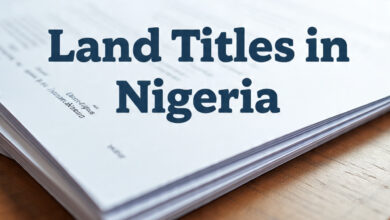The Power of 3D Architectural Visualization: Bringing Designs to Life

Introduction to 3D Architectural Visualization
In a world where digital technology reigns supreme, the realm of architecture has been profoundly transformed by the advent of 3D architectural visualization. This technique, which utilizes computer-generated imagery to create three-dimensional models of buildings and interiors, has revolutionized the way architects and clients visualize and understand spatial designs. By bringing blueprints and sketches to vivid life, 3D visualization offers a window into the future, allowing us to see, explore, and modify our envisioned spaces before a single brick is laid.
The Evolution of Architectural Visualization
Architectural visualization is not a novel concept; it has evolved from basic sketches to detailed 2D plans and now to sophisticated 3D models. This evolution has been fueled by advancements in computer graphics technology and software capabilities, making 3D visualization not just an option but a necessity in modern architectural design and planning.
Tools and Software for 3D Architectural Visualization
- Autodesk 3ds Max
- Revit
- Blender
- SketchUp
- Lumion
- ArchiCad etc…
Key Benefits of 3D Architectural Visualization
- Enhanced Communication
One of the standout benefits of 3D architectural visualization is its ability to bridge the communication gap between architects, clients, and stakeholders. With a realistic 3D model, all parties can better understand the proposed design, leading to more informed decisions and approvals.
- Cost-Effectiveness
Mistakes in architecture can be exceedingly costly. 3D visualization allows for thorough review and testing of designs, identifying potential issues before construction begins, thereby saving time and money.
- Design Precision and Flexibility
3D modeling offers unparalleled precision in architectural design, ensuring every detail can be meticulously planned and adjusted as needed. This flexibility allows architects to explore various options and make changes easily without significant disruptions or expenses.
How It Works: The Process Behind 3D Visualization
- Conceptualization and Ideation
- Modeling and Texturing
- Lighting and Rendering
- Post-Processing and Enhancement
Creating a 3D architectural visualization involves several steps. It begins with the collection of project data, including plans, elevations, and materials. This information is then used to build a digital 3D model, which can be refined and textured to add realistic details. Lighting plays a crucial role in bringing the model to life, followed by rendering, where the model is finally transformed into high-quality images or animations.
The Role of Technology in Advancing 3D Visualization
The growth of 3D architectural visualization is closely tied to technological advancements. Software developments, for instance, have made it easier and faster to create detailed models, while virtual reality (VR) and augmented reality (AR) technologies are opening new frontiers for immersive design experiences. These tools not only enhance the visualization process but also make it more accessible to a broader audience.
Real-world Applications and Success Stories
From residential buildings to complex urban developments, 3D architectural visualization has been instrumental in numerous success stories across the globe. It has enabled architects to win competitive bids, facilitated community approvals for controversial projects, and helped clients visualize and customize their future homes in detail.
ALSO READ ABOUT
- How to Make Money from Vacant Plots
- The top 10 benefits of owning land
- How To Perform Real Estate Due Diligence
- Understanding Real Estate: What Everyone Must Know
Looking Ahead: The Future of 3D Architectural Visualization
The future of 3D architectural visualization is bright, with continuous advancements in technology paving the way for even more innovative uses and applications. The integration of AI and machine learning could further streamline the design process, while real-time rendering might soon allow for instant visualizations, making the design experience more dynamic and interactive than ever before.
Conclusion
3D architectural visualization is a powerful tool that has fundamentally changed the landscape of architecture and design. By enabling a clear, detailed view of future projects, it enhances communication, saves cost and time, and provides flexibility in the design process. As we look ahead, the potential for further innovations and applications of this technology is vast and exciting.
Call to Action
If you’re looking to bring your architectural designs to life or want to explore the possibilities of 3D visualization, consider reaching out to a professional like us. Feel free to reach out to us for your next project. We can help you transform your ideas into virtual reality. Also you can visit our website at reapse.co to purchase the land that suits you best for your next project.
FAQs (Frequently Asked Questions)
- Is 3D architectural visualization suitable for all types of projects?
- Yes, 3D architectural visualization can be applied to various projects, including residential, commercial, and industrial developments.
- How long does it take to create a 3D architectural visualization?
- The time taken depends on the complexity of the project and the level of detail required. It can range from a few days to several weeks.
- Can 3D architectural visualization be used for interior design purposes?
- Absolutely! 3D visualization is equally applicable to interior design projects, helping designers and clients envision spaces before implementation.
- Are there any limitations to 3D architectural visualization?
- While incredibly versatile, 3D visualization may face challenges related to hardware and software requirements, as well as the learning curve associated with mastering the tools.
- How can I incorporate 3D architectural visualization into my design workflow?
- To integrate 3D visualization into your workflow, explore software options, invest in training, and collaborate with experienced visualization professionals.





Great piece